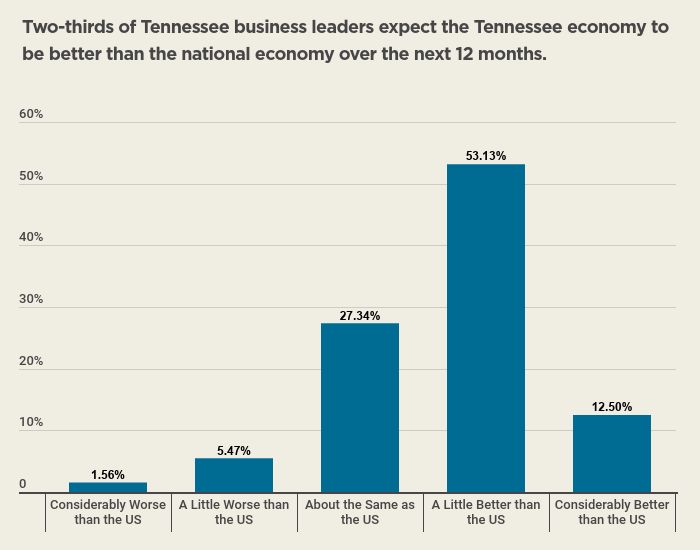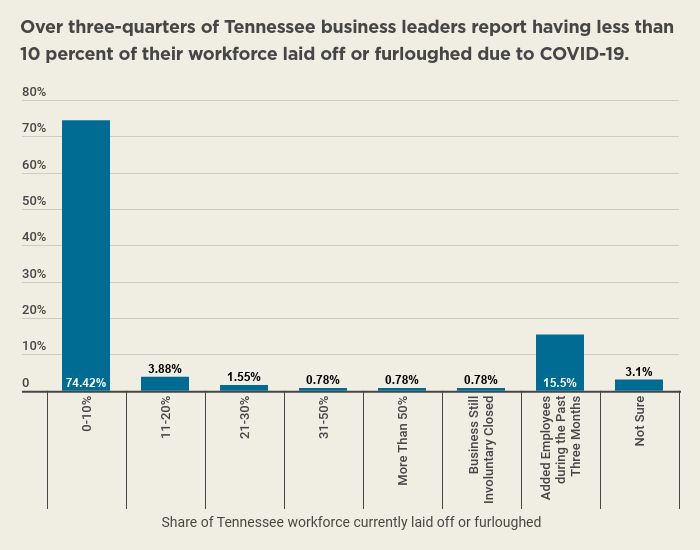Tennessee business leaders expect the state’s economy to improve more quickly than the nation’s over the next year, largely in part due to strong business investment and government leadership, according to a new survey conducted by the Boyd Center for Business and Economic Research at the University of Tennessee, Knoxville.
The Tennessee Business Leaders Survey also found that nobody expects to see substantial employment declines for their company over the next 12 months.

“In fact, about 16 percent of business leaders indicated they have actually increased employment in the past three months,” said Bill Fox, director of the Boyd Center. “It is certainly a unique time for Tennessee and the nation, and this offers an encouraging perspective about the economy’s resilience during the COVID-19 pandemic.”
Almost 63 percent said their businesses stayed open throughout the COVID-19 pandemic, while 27 percent remained open with significant restrictions. Only 10 percent said their businesses were voluntarily closed due to weak demand, and less than one percent were shuttered by government restrictions.

When it comes to creating a good business environment in Tennessee, about two-thirds said the state does an excellent or good job while 11 percent said Tennessee does poorly. Almost 75 percent said Tennessee is heading in the right direction, and about 70 percent listed both technology infrastructure and transportation infrastructure as beneficial options for improving Tennessee’s business climate. The third most popular response was economic development incentives.
Responses about the state’s labor force varied widely by region. About two-thirds of those surveyed from Middle Tennessee said they have enough workers who are appropriately trained and have no problem retaining those workers. Just 35 percent in East Tennessee said there were enough workers, but retention was not a problem for 63 percent of business leaders in that region. In West Tennessee, almost three-fourths said they lacked appropriately trained employees, and over half said that retention was an issue.
“By far the quality of local schools was the biggest concern for those businesses trying to attract and retain employees in West Tennessee, at almost 62 percent,” Fox said. “Substance abuse was listed more often in the eastern and western parts of the state, and—as you might expect—housing availability and cost play a much larger role in booming Middle Tennessee.”
More than 80 percent listed adverse economic conditions as one of three top challenges for businesses in Tennessee. About 50 percent also included taxes, and 25 percent listed government regulations. Human resources, global political instability, risk management and health care costs were frequently listed as factors as well.
The Boyd Center, located in the Haslam College of Business, conducted the inaugural survey between August 12 and 20, gathering responses from business leaders from across Tennessee. Respondents represent a broad sample of businesses across all industries and range in size from less than 50 to more than 5,000 employees. The full results can be found online.
—
CONTACT:
Erin Hatfield (865-974-6086, ehatfie1@utk.edu)

